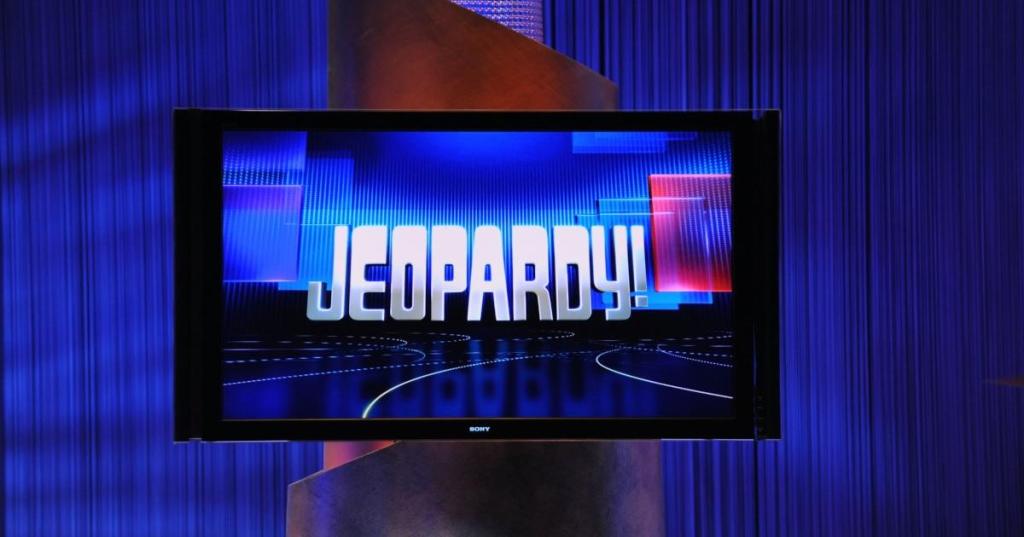Jeopardy! champions, like Obi-Wan Kenobi, know there is no such thing as luck. It takes hard work to become a success on the show, meaning that just randomly picking clues on the board will not help. After Amy Schneider became one of the four highest-earning players in the game’s history with over $1 million, a few Jeopardy! contestants shared their secrets to success with the New York Post.
Before Austin Rogers won $411,000 in 2017, he studied Jeopardy! game history for 11 hours a day using J! Archive, a fan-run database with clues dating back to 1985. “I would open random games [on the archive site] and play them in my head. I noticed what comes up the most. If a question says ‘artist in Iowa,’ it has to be Grant Wood,” Rogers told the Post. “And if it says ‘Thornton Wilder,’ the correct response always has to be Our Town.”
Videos by PopCulture.com
In a stroke of irony though, the only Final Jeopardy! answer Rogers got wrong was about Wilder. “But luckily I did well enough throughout the game that I still won,” he said. Rogers, whose book The Ultimate Book of Pub Trivia by the Smartest Guy in the Bar comes out in February, noted that J! Archive also has a helpful search function that shows repeated answers.
Rogers also suggests aspiring Jeopardy! contestants pay attention to the well of pop culture references the show pulls from. It also helps to memorize superlatives like the longest rivers and tallest mountains. Memorizing state capitals is helpful since there are often clues about those cities.
Jeffrey Williams, who was among the contestants in the late Alex Trebek’s final episodes in December 2020, told the Post he found some of James Holzhauer‘s advice helpful. He studied children’s books on world history, geography, and presidents to understand the reading level at which most clues are written.
Williams studied for 90 minutes a day for three months and also used J! Archive to see find “holes” in his knowledge. “It showed me that I didn’t know much about Nobel Prize winners,” he told the Post. “So I went down a Wikipedia rabbit hole on that one – and benefited when a category called ‘First Nobel’ came up. It also helped me to figure out where clues were leading. You start to notice wordplay in the clues, which guide you to the correct answers. You realize that the clues are more than just trivia questions.”
Knowing your stuff is always helpful for Jeopardy!, but you also have to be very fast with your thumb on the buzzer. Rogers walked around New York City with a thumb exerciser while he listened to episodes on his phone to practice buzzing. Williams found a helpful hint in Secrets of the Buzzer by Fritz Holznagel. The best tip “was to relax your arm in order to speed up hitting the buzzer,” he said.
Williams and Rogers aren’t the only contestants who praised J! Archive. In 2013, six-time champion Jared Hall advised wannabe contestants to use the site to find rhythms in clues. “You’ll begin to notice recurring themes, repeated phrases, and subtle clues all over the board,” he wrote on MIC. “Once you start to get inside the minds of the people who write the clues, coming up with your responses will be much easier.”
J! Archive was started by Robert Schmidt and his team chronicles every episode on their own. Schmidt told Polygon in 2020 that he is “most proud” of the site when he hears champions admit they used the site as a reference.
Related Posts
-

CELEBRITY JEOPARDY! – "Quarterfinal #1: Mark Duplass, Emily Hampshire and Utkarsh Ambudkar" – On the season premiere of "Celebrity Jeopardy!," stars Mark Duplass ("The Morning Show"), Emily Hampshire ("Schitt's Creek") and Utkarsh Ambudkar ("Ghosts") compete for the chance to win the grand prize of $1 million for the charity of their choice. WEDNESDAY, SEPT. 27 (8:00-9:00 p.m. EDT), on ABC. (Eric McCandless/ABC via Getty Images)KEN JENNINGS




